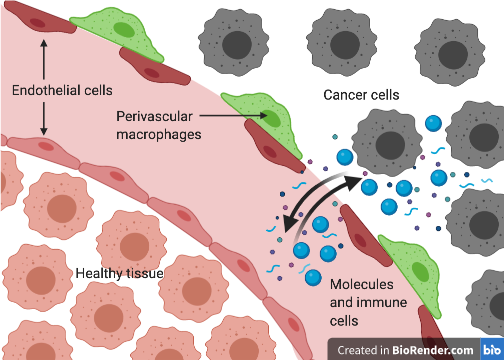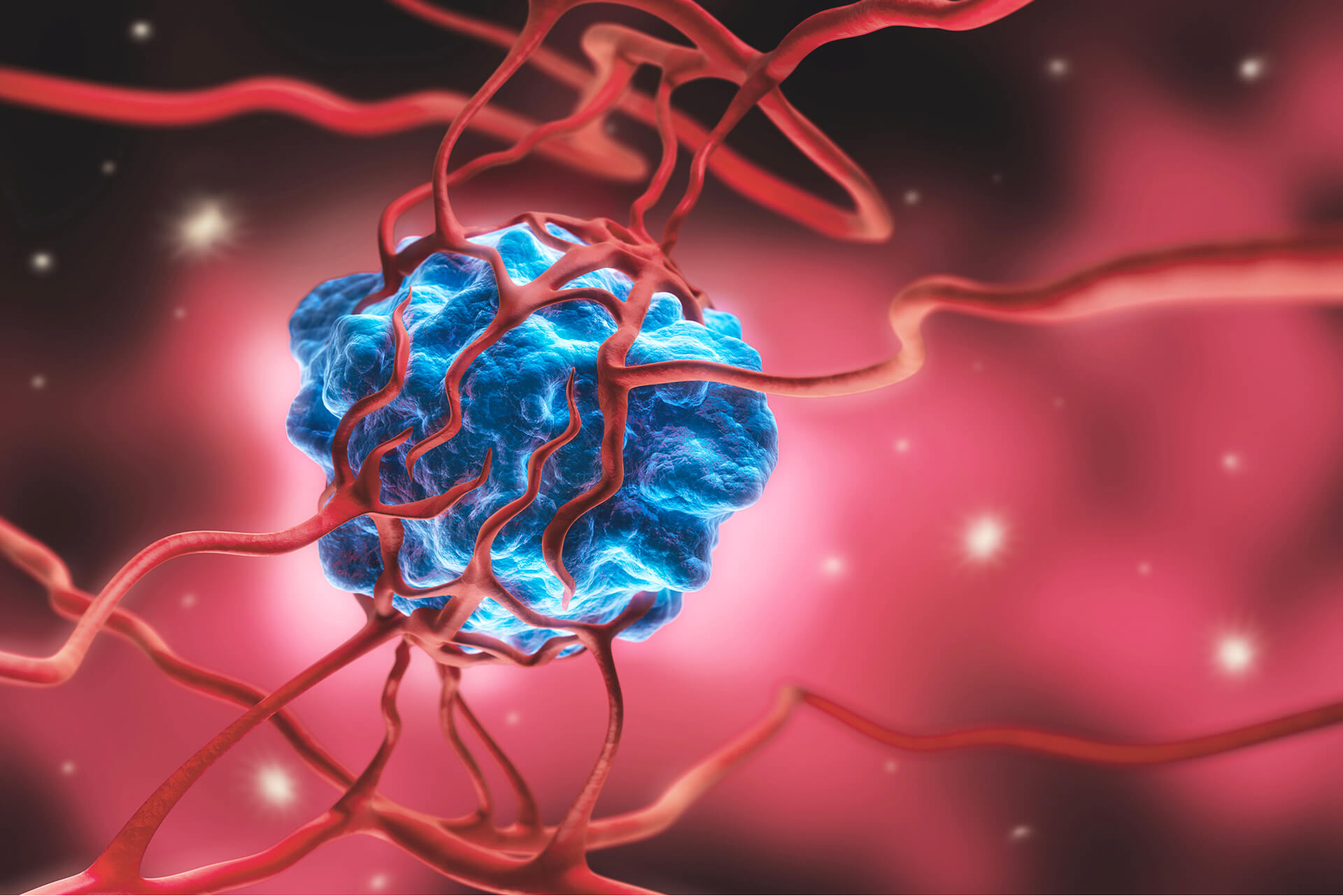Tumors aren’t just a collection of mutated cells: these malignant cells create their own microenvironment, where they carve out a niche in our bodies suited to their own needs. In shaping this microenvironment, the tumor cells dampen the local immune response to stop immune cells like macrophages and T-cells from killing the tumor cells. They also promote the growth of blood vessels, a process called angiogenesis, to bring in a vital supply of oxygen and nutrients that help the tumor cells grow.
For many years, companies have tried to limit tumor growth by restricting angiogenesis, aiming to starve the tumor cells. This therapeutic axis has not lived up to the high initial expectations and other avenues are needed. Now, a Belgian startup called Montis Biosciences is trying a different approach. Instead of cutting off the blood supply to tumors, it is looking to enhance the important role the tumor endothelial cells play as part of the immune system. This should allow the right immune cells to do their job attacking the tumor.
The vital role of gatekeeper cells
Montis Biosciences, founded on the expertise of the labs of Peter Carmeliet and Massimiliano Mazzone (both VIB-KU Leuven), is based on new insights into the interactions between certain immune cells and the tumor blood vessels.
Specifically, the company is looking at perivascular macrophages, immune cells that are either in close contact with the tumor endothelial cells, or reside just a cell’s width distant. Macrophages are abundant in most types of malignant tumors. Although they are meant to protect the body from infection, in tumors they have been reprogrammed to promote tumor angiogenesis and the suppression of antitumor immune mechanisms.
We’re aiming to positively modulate this interaction to change the environment from immunosuppressive to anti-tumor, allowing immune cells to do their job and eliminate the tumor cells. – Karen Zinkewich-Péotti
The other cell type of interest is the endothelial cells that make up the walls of the tumor’s blood vessels. Under the influence of the perivascular macrophages, these cells hold a gatekeeper function, dictating which cells and substances are allowed in and out of the tumor microenvironment.

Tumor microenvironment showing gatekeeper function of endothelial cells and perivascular macrophages (image credit ©Turnstone Communications, created with BioRender.com)
Montis Biosciences is leveraging the interaction between the perivascular macrophages and tumor endothelial cells to enhance anti-tumor immunity by positively modulating the tumor vasculature and for example, permitting the influx of the right immune cells into the tumor microenvironment. Montis Biosciences CEO Dr. Karen Zinkewich-Péotti explains:
“Based on single cell RNA analysis of tumor samples, we’ve been able to focus on specific tumour endothelial cells and their interactions with perivascular macrophages. We’re aiming to positively modulate this interaction to change the environment from immunosuppressive to anti-tumor, allowing immune cells to do their job and eliminate the tumor cells.”
Read this BioVox article for more on Damya Laoui’s work on cancer immunotherapy
A holistic approach for overcoming heterogeneity
Montis Biosciences was founded by Droia Ventures, VIB and KU Leuven and raised EUR 8.4 million in seed financing in February 2020 from an international investor syndicate. Though the pandemic has certainly made this a challenging time to set up a start-up, the Montis Biosciences team has made significant progress in identifying and validating lead targets for further development towards therapeutic drugs. To begin with, the company is looking at antibody-based therapeutics, but further out, there may be other targets that are more amenable to small molecules. Zinkewich-Péotti states:
“We have confirmed expression of our targets in a number of solid tumor types, and are aiming to have an impact on both primary solid tumors and metastases, both as a stand-alone and in combination therapy. We are also expanding our unique screening and assay platform to look for additional promising leads.”
Tumors create a complex microenvironment with multiple cell types all playing an important role. This complexity is part of the challenge, but herein also lies the solution. – Karen Zinkewich-Péotti
When asked about what drew her to Montis Biosciences specifically, Zinkewich-Péotti says:
“There is great science behind the Montis Biosciences strategy, and I like the fact that it is a holistic approach. Tumors create a complex microenvironment with multiple cell types all playing an important role. This complexity is part of the challenge, but herein also lies the solution: by modulating the interaction between tumor endothelial cells and perivascular macrophages, we can affect a number of different biological parameters. This will help overcoming issues of tumor and immune system heterogeneity. The current immuno-oncology approaches work so beautifully, but only for a small number of patients in a small number of indications. By tackling the system from another angle, we hope to create therapies that are more broadly applicable and can help more patients to overcome their disease.”


